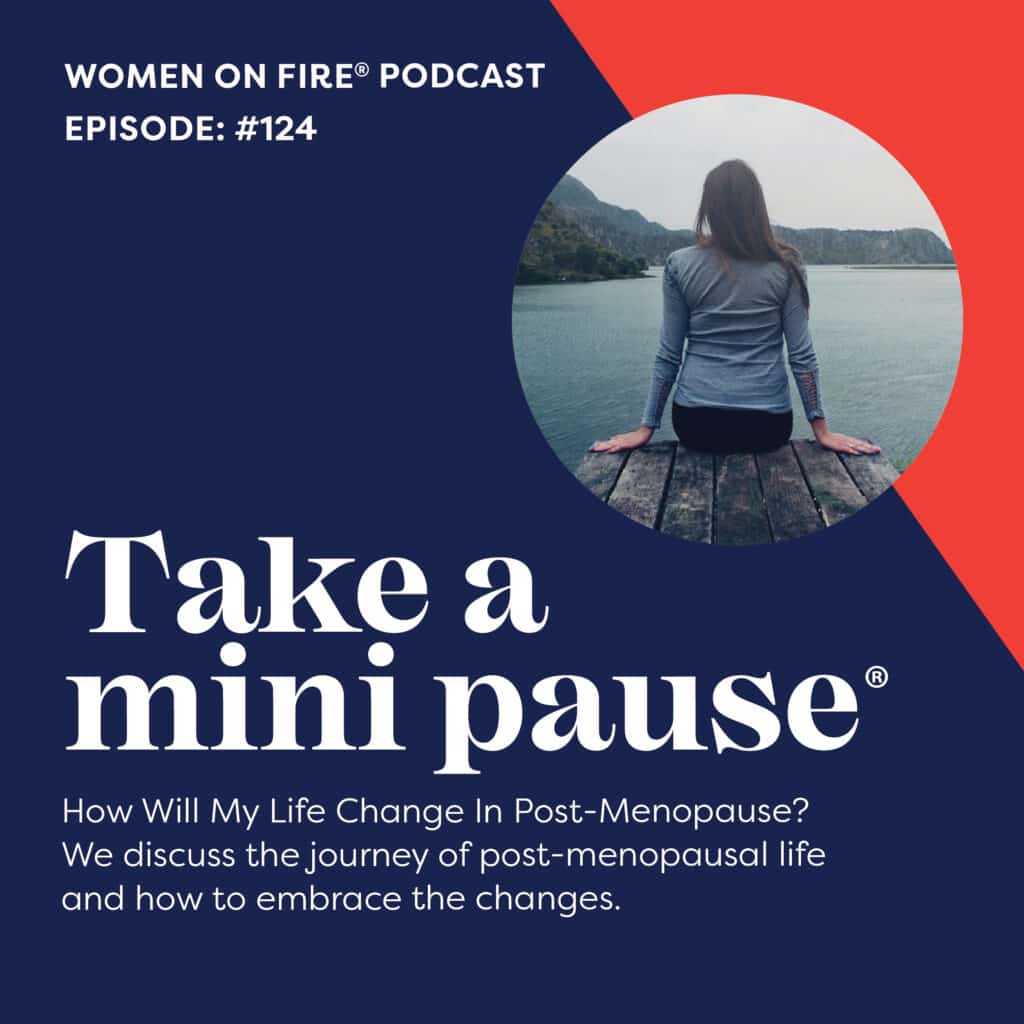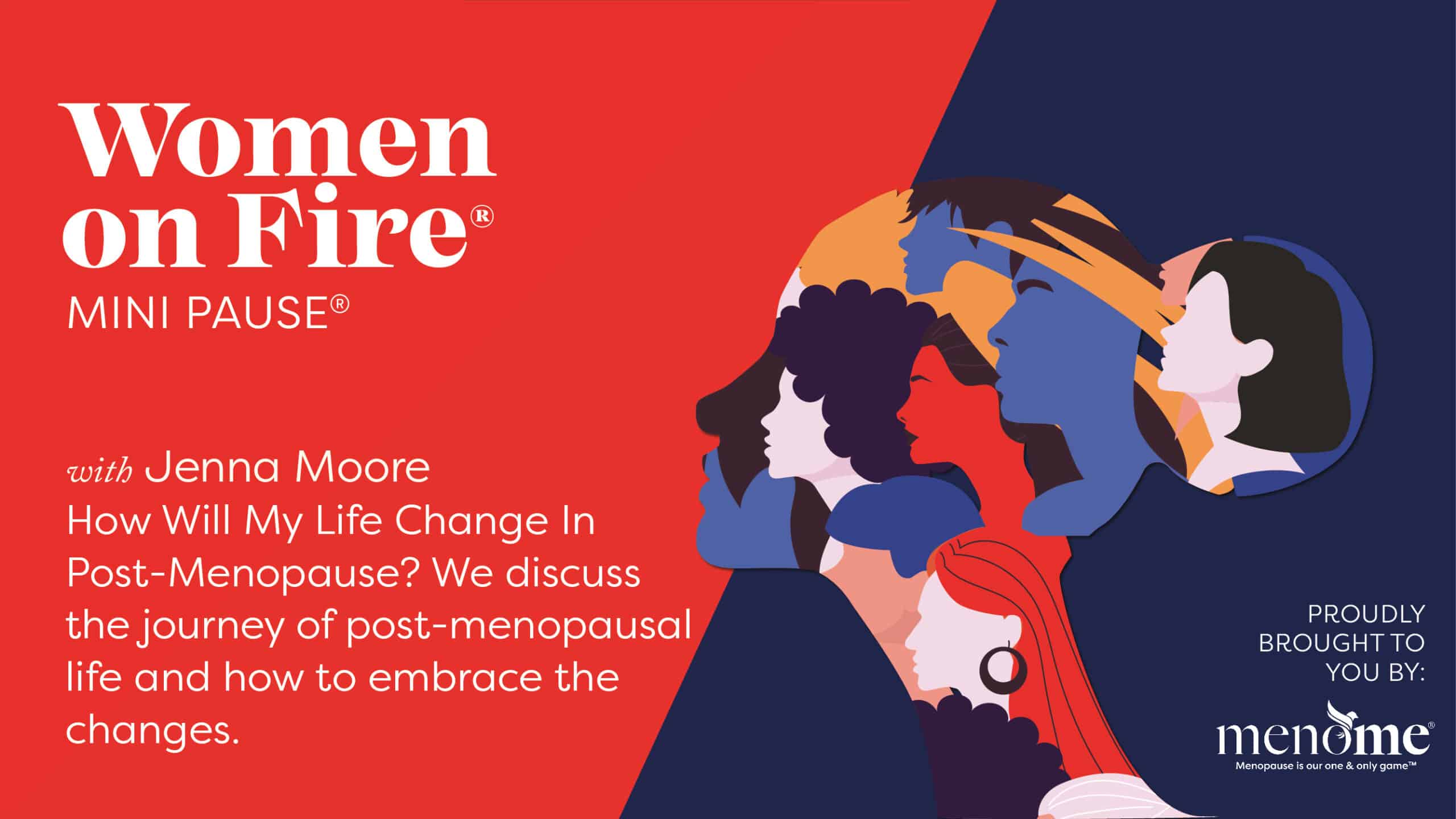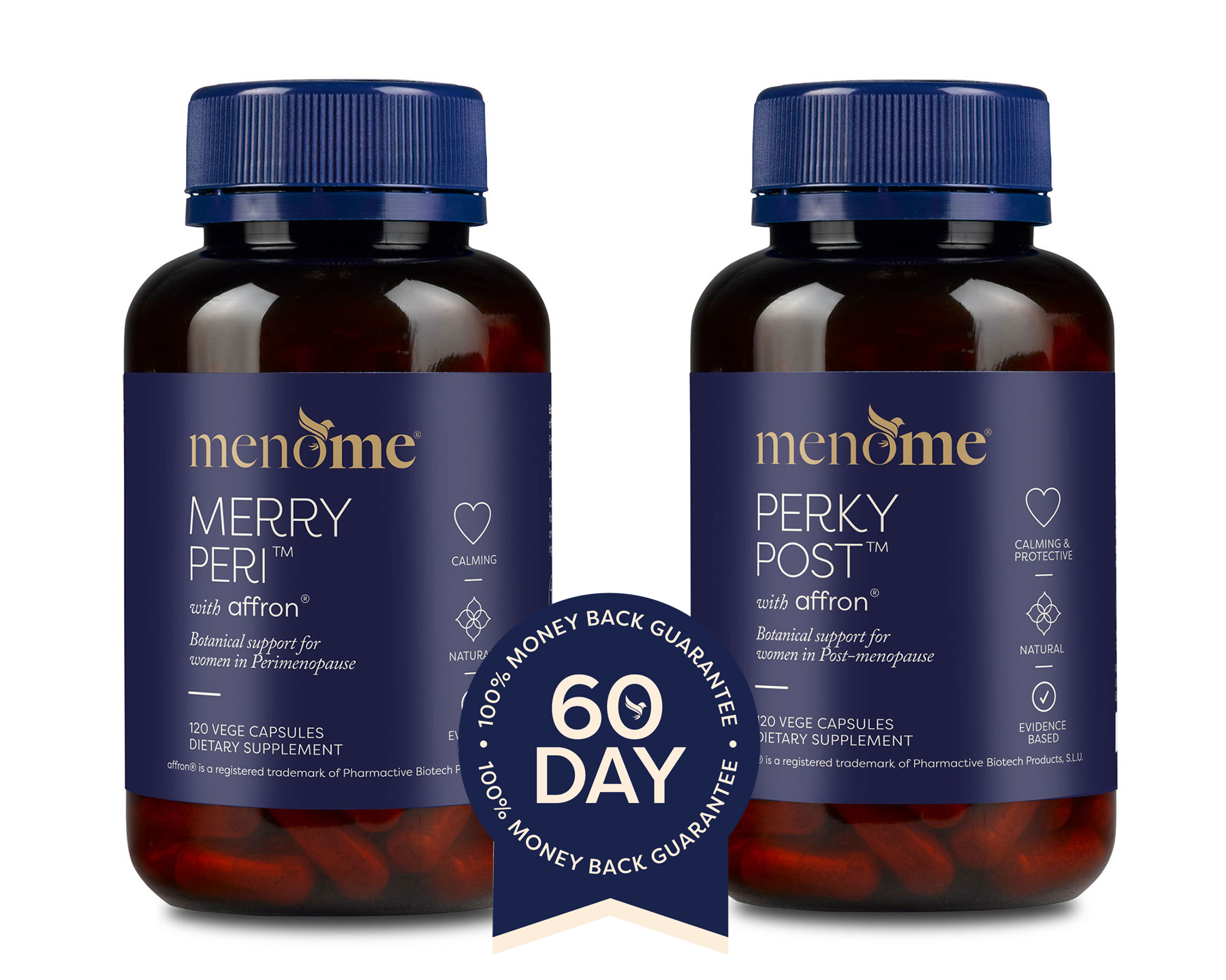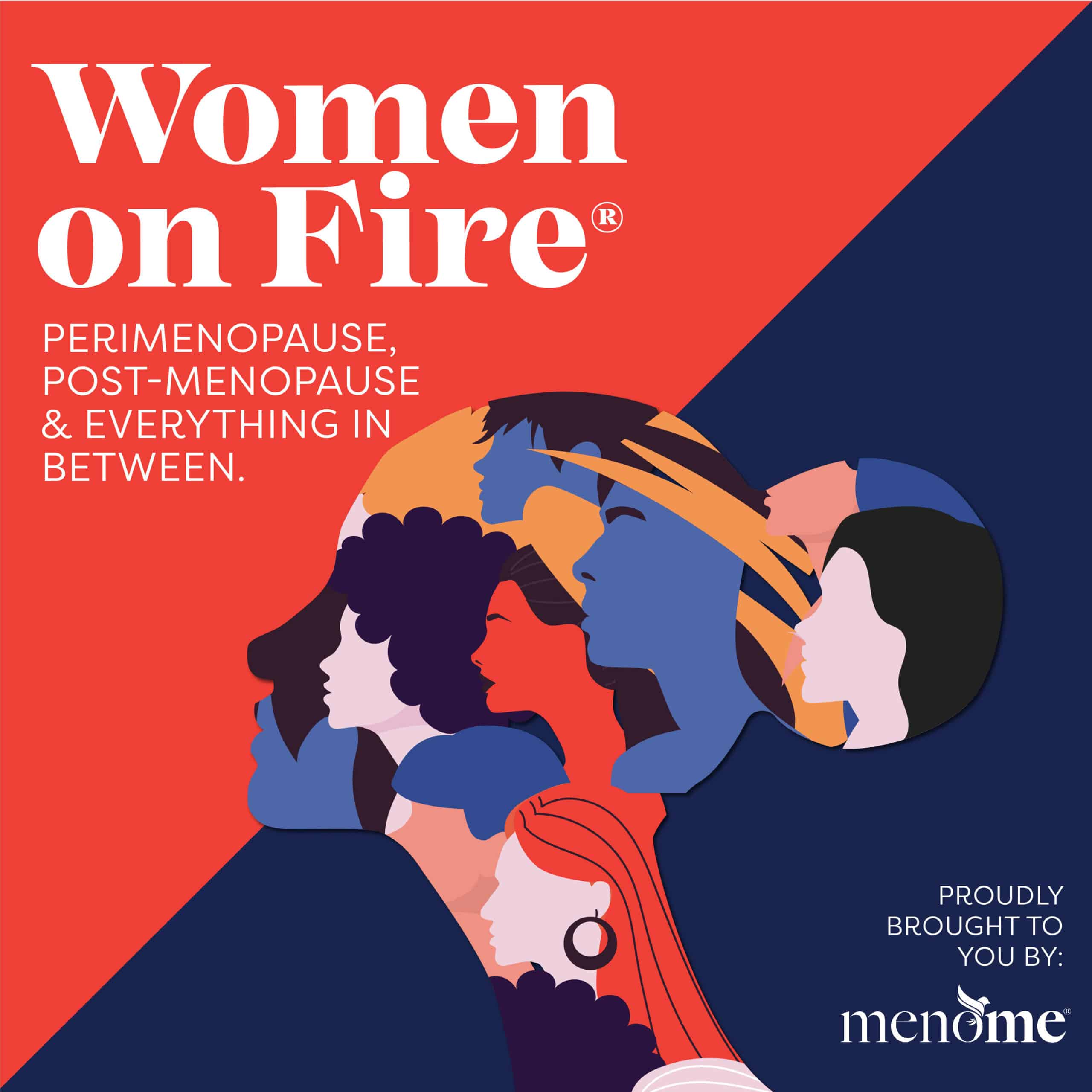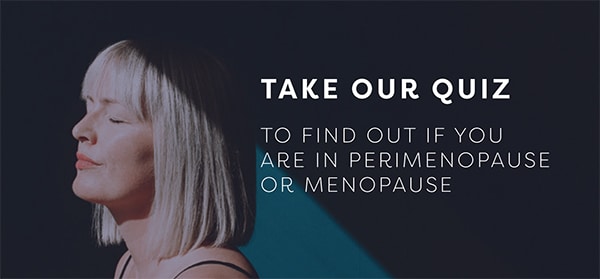Podcast Interview
In this episode, we talk about:
- How will post-menopause change your life? (1:04)
- What is post-menopause? (1:18)
- The average age for post-menopause (2:13)
- What happens in post-menopause? (2:36)
- Three health issues to check for (3:27)
- Other things to note (5:58)
- The happiness factor (6:22)
- Your Warrant of Fitness (7:24)
- Tips to live by for your best post-menopause (7:57)
Episode Resources:
- Listen to episode #104 How Will I Know If I’m in Perimenopause? here
- Listen to episode #122 What Is Menopause? here
- Discover Gwinganna Lifestyle Retreat & Dr Karen Coates here
- Explore The Menopause Brain by Dr Lisa Misconi PhD here
- Phytoestrogens and their effects
- Download the free Phytoestrogen Food List here
- Perky Post® for post-menopause
Video Version
Transcript
Today I want to cover post-menopause for you or, in fact, how post-menopause will change your life. And that’s a very good question because it will. So first things first, let’s define post-menopause.
Post-menopause is the term for the time in our lives that follows perimenopause and menopause. Our estradiol (estrogen) levels fall and our reproductive systems shut up shop as we move into mature womanhood. Or as Ayurveda would say, we become the wise woman, which I love. Don’t you love that? I’ll link to the perimenopause and menopause episodes in the show notes for you. So you’ve got every stage covered.
But in a nutshell, post-menopause is a time when your periods are finito, they’ve reached the grand finale, not temporarily as they do during pregnancy, but for the rest of your life. And with the average age of moving into this life stage being 51, 52, and we have an average age expectation of about 83, I think it is now. Depending where you are, we will spend a third of our lives in post-menopause. So that’s quite a lot, isn’t it?
However, it’s a time when we become more vulnerable to certain heart, brain, breast, and bone conditions, post-menopaususe. And one reason for this is that while we still have estrogen in our bodies it’s a weaker form, known as estrone. Whereas while we were in our reproductive years, we had a very protective and stronger form of estrogen called estradiol. And that’s what decreases, that’s the nature of menopause, the reduction of estradiol. And estradiol is protective for a lot of our organs, it’s also our juice. (It keeps us lubricated.)
But because of that, there are three health conditions to become concerned about. And those are osteoporosis, which is a lessening of bone density and a weakening in the strength of our bones. So it’s a really good idea to go to your doctor and ask them to refer you for a DEXA scan, which measures bone density.
Another condition that can be a concern for women in midlife is heart disease. In fact, the New Zealand Heart Foundation says that 60 women die from heart disease every week. In Australia, the statistic is 22 per day, which is three times the rate of breast cancer. (Editor’s note: One in 14 women die of heart disease in the UK. In addition, it’s estimated that 44% of women are living with heart disease in the United States.)
So, it’s a big deal. The most common factors are high cholesterol, which increases naturally during menopause, being overweight and not exercising or moving your body enough. So again, ask your doctor to check your cholesterol and your blood pressure to see how you’re doing there.
And number three is Alzheimer’s disease and dementia.
Gwinganna Lifestyle Retreat, which is in Queensland’s Hinterland, has a favourite female doctor who’s amazing. Her name is Dr. Karen Coates, if you’ve ever had the privilege of listening to her speak. And when I was there a few years ago, she spoke about how dementia had overtaken heart disease as the number one killer of women. So dementia and Alzheimer’s is a very big deal for us.
And I know that sometimes brain fog or forgetfulness, which can be some of the signs and symptoms of menopause or perimenopause, can make you nervous that you’re developing this. But the good news there is most of the time that kind of thinking is unfounded, but it’s certainly something to be aware of. Dr. Lisa Mosconi does some wonderful work and research around this, and she’s just got a new book out. I will put those links in the show notes for you. I would love to have her on as a guest, but she’s a big star, so I’m not sure how I will go, but I will try.
Estradiol is also a key lubricant. So you may notice that you have drier lips, stiffer joints or a drier vagina. Its reduction can also affect our thyroid, our digestion, our insulin, our cortisol and our weight.
So, I’m very sorry about this. It all sounds very dire, but there’s some good news here.
Loads and loads of women report feeling happier once they enter post-menopause. So isn’t that a great thing?
Most of the hormonal chaos and signs and symptoms of perimenopause tend to reduce at this time or at least go away. Unfortunately for a few women, some of them – like hot flushes – can go on for years, but that doesn’t happen to many of us. And certainly the things like anxiety, headaches, perimenopausal depression, etc. can reduce at this time. So that’s something to look forward to.
If your energy’s been depleted during the transition, you may find that comes back as well. And the other good news is many women report saying that they feel more of a sense of freedom and more of a sense of confidence because confidence is something that can get a bit rocky during menopause.
Post-menopause is actually the perfect, perfect time to check in for a health warrant or fitness and to ramp up your wellbeing practices. You’ve often got more time on your hands. If you’re lucky, you might have more disposable funds and it creates the ideal opportunity to do some self-focus. While some things are out of our control, it’s a great time to take ownership of your life.
So, a few tips I can share with you are:
1.Eating plenty of lean protein because a lot of women don’t eat enough. And that’s just about a fist size, (rather than going into weight), a fist size every time you eat. And pair it with whole grains, good fats and lots of green leafy vegetables.
2. Phytoestrogens are wonderful for women in midlife. They’re like nature’s estrogen and they can help support our bodies. Plant-based diets are particularly rich in them. And research has shown that phytoestrogens may help with bone loss as well. So that’s a biggie for us. Now we do have a list, a free list that I’m going to share with you in the show notes, but here are just a few examples. Broccoli, beans, peas, carrots, apples, pomegranates, spinach, flax seeds, sesame seeds, oats, lentils, soybeans, tofu, and tempeh. So they’re all wonderful. And eat the rainbow, try and get 30 different types of vegetables and fruit in your week. That’s a wonderful thing.
3. Another tip, and I feel like a broken record, but our body cannot process refined sugars and processed foods very well anymore. So they’re a really good thing to avoid. Know that vitamin D3 and vitamin K2 can be very, very supportive of your bone density as well. And reduce stress as much as possible because we can’t cope with it as we once did.
Our sponsor MenoMe® includes vitamin D3 and vitamin K2 in their Perky Post which is specifically formulated to support women in post-menopause.
So, I hope that’s given you a little bit of a quick overview and that’s been helpful for you.
As I say, I will link “How will I know if I’m in Perimenopause?” and “What is Menopause?” in the show notes, so you’ve got everything covered off there. Thanks for tuning in. I hope to see you soon. 🙂
